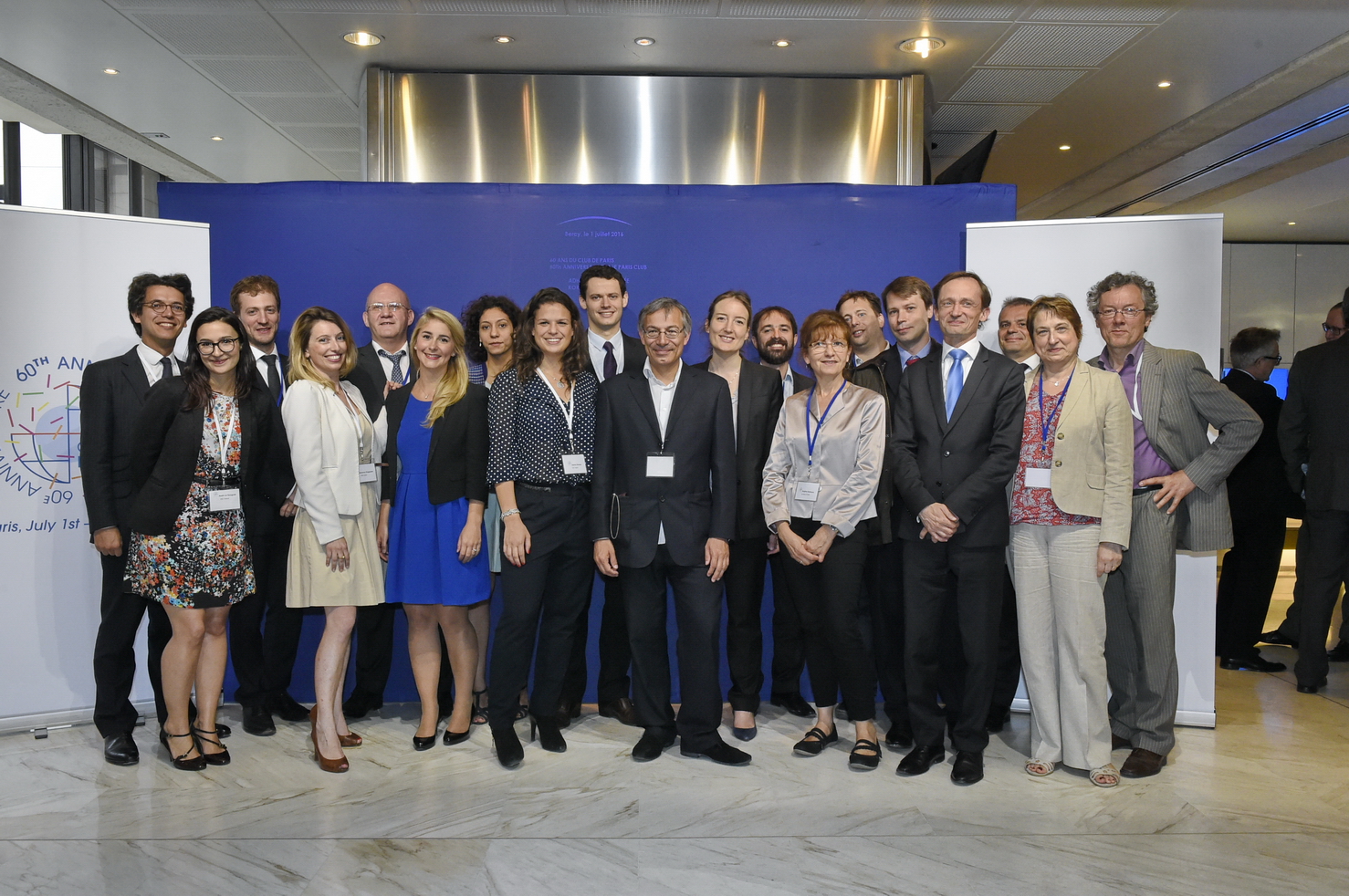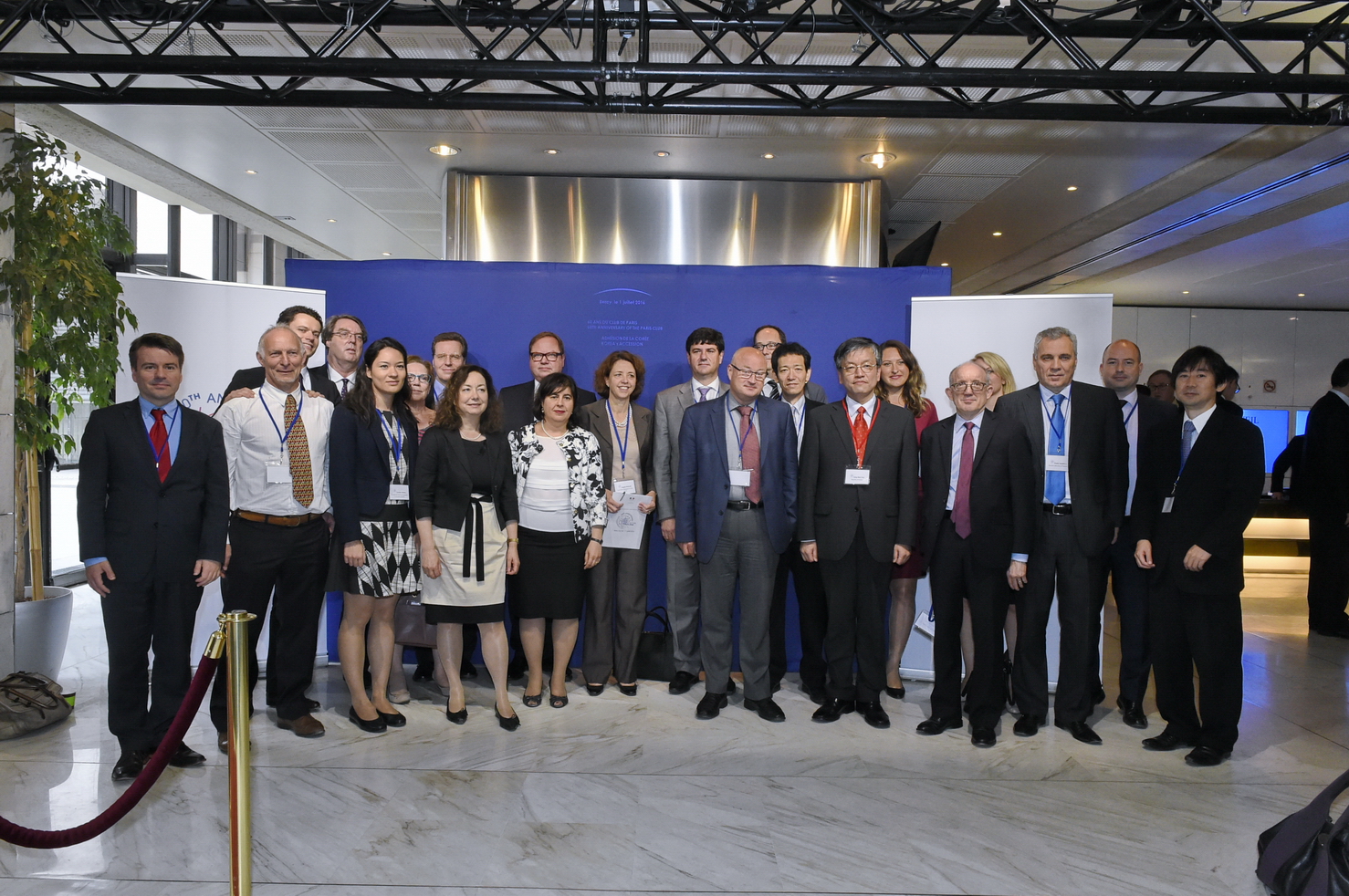The 2016 annual report of the Paris Club is now available on the Paris Club website.
2016 has been a historical year for the Paris Club, in terms of its recognition on the world stage, its expansion to two new members and its contribution to sovereign debt issues.
Paris Club’s 60th anniversary was celebrated on July 1st, on which day Korea was welcomed as its 21st member, marking the culmination of almost 20 years of cooperation. This exceptional day gathered high-level officials to discuss the current and future challenges of sustainable financing and orderly sovereign debt restructuring.
Soon after Korea, Brazil became the 22nd member of the Paris Club, on November 29th, during the 4th Annual Paris Forum Conference. These two accessions demonstrate the Paris Club’s ability to expand its membership to emerging creditors and reinforce its position as the principal international forum for restructuring official bilateral debt.
This Conference also enabled representatives of more than forty sovereign credit and debtor countries and of ten international organizations to exchange views on the definition of such operational guidelines for sustainable financing, during a session open to the press and civil society.
In 2016, the Paris Club and the Institute of International Finance (IIF), worked hand in hand to continue their joint reflection by organizing their 16th annual meeting. This meeting was a unique opportunity for public and private creditors to share views on the macroeconomic environment, the impact of capital flows on emerging markets and to debate and engage on the management of sovereign debt issues.
Finally, 2016 will be remembered as a historical year thanks to the G20 leaders’ communiqué delivered in Hangzhou, which explicitly referred for the very first time to the Paris Club as “the principal international forum for restructuring official bilateral debt”. This statement is all the more symbolic that it was made under the auspices of the G20 Chinese Presidency, China having been also ad hoc participant of the Paris Club for the last few years.
Background notes
1. The Paris Club was formed in 1956. It is an informal group of creditor governments. It meets in Paris to coordinate policies, share information, and in some cases to meet with debtor countries to agree on restructuring their debts.
2. The members of the Paris Club are: Australia, Austria, Belgium, Brazil, Canada, Denmark, Finland, France, Germany, Ireland, Israel, Italy, Japan, Korea, the Netherlands, Norway, Russian Federation, Spain, Sweden, Switzerland, the United Kingdom and the United States of America.
3. The publication of an annual report, since 2008, is an example of Paris Club creditors’ commitment to enhance the transparency of the Club’s work and functioning.
4. The 2016 Paris Club annual report comprises five main chapters:
-- A chapter on the accession of two new members to the Paris Club,
-- A chapter on the celebration of Paris Club’s 60th Anniversary,
-- A chapter on the strengthening of the Paris Forum and global co-operation on sovereign debt issues,
-- A chapter on the enhancing the co-operation with the private sector,
-- A chapter on the Paris Club’s contribution on the review of OECD guidelines on sustainable lending.
In addition to these five main chapters, the annual report includes detailed annexes on the current claims, function, principles of the Paris Club and the outstanding capital due by debtor countries.















